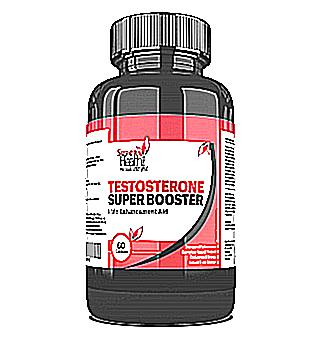Home >
Erectile Dysfunction >
Testosterone for impotence
Testosterone for impotence

In medicine, testosterone (androgen) means the main male sex hormone. The substance is secreted from cholesterol by the adrenal cortex, as well as by the cells of the testes (in men) and the ovaries (in women).
The sex hormone has a fairly low activity. An increase in the strength of action on androgen receptors is due to certain enzymes. When interacting with organic compounds, the hormone is converted into highly active dihydrotestosterone.
Testosterone Properties
Androgens are directly involved in the development and subsequent functioning of the male genital organs. When hormonal disorders occur in men, congenital defects occur associated with insufficient development of sexual characteristics. The reduced biological effect of testosterone leads to male menopause. In this state, the patient gradually loses the ability to engage in sexual relations and procreation. An excess of testosterone in the blood also has negative consequences in the form of dermatological disorders (overactive sebaceous glands, acne and seborrhea). Taking large doses of the hormone causes:
- priapism and hypersexuality
- gynecomastia (obesity of the breast)
The consequences of a lack of testosterone
Urologists consider it natural a gradual decrease in testosterone levels after the onset of 30 years of age. A decrease in the therapeutic concentration of sex hormones leads to:
- decrease in sexual desire for the opposite sex
- impairment of erectile ability
- decrease in muscle mass, endurance and strength
- increased irritability and anxiety
- rapid fatigue, chronic fatigue syndrome
- impairment of memory and concentration
- slowing down of metabolism and accelerated deposition of adipose tissue
Methods for increasing testosterone levels
In order to normalize hormones and prevent the onset of impotence without using medication, men are advised to take care of the following significant aspects of their lives.
Sleep normalization
Compliance with the correct mode of work and rest is required to regulate the secretory function of the testicles. The secretion of most of the sex hormones is carried out by the glands in the deep sleep phase. If a man has an irregular work schedule and sleeps less than 7 hours a day, then this has an adverse effect on his health and well-being. As a result of shallow short-term sleep, the patient's body does not have time to recover from work. This leads to feelings of fatigue, increased photosensitivity, nervousness and irritability. The patient may try to replenish the supply of missing energy from food, which will entail gaining excess weight.
Balanced nutrition
To produce the male sex hormone, the body needs to regularly receive and process a complex set of trace elements that are found in food. If a man ignores the rules of a healthy diet, then he develops chronic androgenic insufficiency. In addition, the systematic intake of junk food leads to obesity, an increased risk of diabetes. Endocrine pathology is accompanied by a slow release of testosterone, an increase in the fatty layer in the area of the mammary glands, thighs and abdomen. In order for the hormone production processes to occur at a high speed, the patient should eat daily rich foods:
- minerals (selenium, zinc, magnesium). The menu should include nuts, fresh seafood, lean meats, pumpkin and sunflower seeds;
- vitamins B, C and E. The body needs fresh vegetables and herbs, fruits and berries;
- the essential omega-3 and omega-6 fatty acids found in fish and seafood.
It is important to monitor the amount of fluid you consume. Lack of water in the body slows down the metabolism and secretion of testosterone. You must drink at least 2 liters of clean water per day. Junk food should be gradually eliminated from the diet. In the list of products that reduce the rate of release of hormones, endocrinologists include:
- sweets and pastries
- carbonated drinks
- butter, salted and smoked foods
Increase physical activity
Regular sports training improves mood and muscle tone, increases the immune system and reproductive abilities of men. Moderate resistance training is beneficial for patients of all ages. The duration of the workout should not exceed 60 minutes. To achieve noticeable health benefits, men only need to exercise 3 times a week.



























